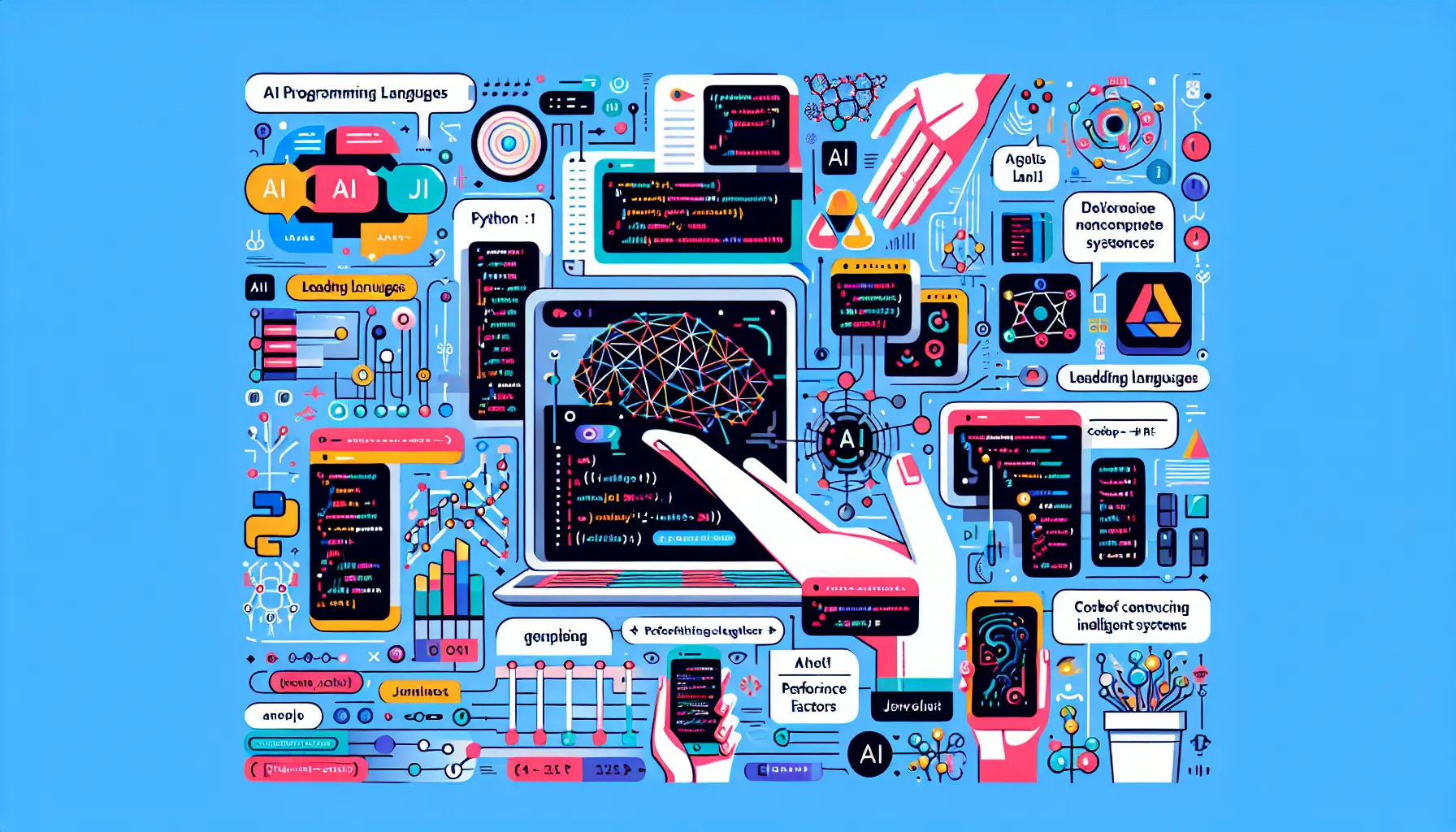
Estimated reading time: 8 minutes
Key Takeaways
- Language Selection: The choice of programming language can greatly influence the efficiency of AI application development.
- Python Dominance: Python is the most popular language for AI due to its simplicity and extensive libraries.
- Performance Matters: Different languages offer varying performance levels, impacting the speed and efficiency of AI tasks.
- Future Trends: The AI programming landscape is evolving with new languages and tools emerging regularly.
- Continuous Learning: Staying updated with the latest developments in AI programming is crucial for success.
Table of Contents
- What Makes AI Programming Languages Different?
- Essential Features of AI Programming Languages
- Top Languages for AI Development
- Performance Considerations in AI Programming
- Choosing the Right AI Programming Language
- Getting Started with AI Programming
- Future Developments in AI Programming
- Practical Steps for AI Development
- Resources for Learning AI Programming
- Frequently Asked Questions
What Makes AI Programming Languages Different?
AI programming languages serve as specialized tools that enable developers to create intelligent applications through dedicated frameworks and libraries. [Source] These languages form the foundation for building sophisticated AI systems, from machine learning models to neural networks.
The right programming language can significantly impact how effectively you build AI applications. Whether you're developing a natural language processing system or training deep learning models, your choice of language affects development speed, performance, and maintainability.
Essential Features of AI Programming Languages
Before diving into specific languages, let's examine what makes a programming language suitable for AI development:
- Strong mathematical and statistical capabilities
- Efficient memory management
- High-quality machine learning libraries [Source]
- Good data processing capabilities
- Active developer community
Top Languages for AI Development
Python: The AI Developer's First Choice
Python leads the pack in AI development, offering:
- Extensive AI libraries (TensorFlow, PyTorch, scikit-learn)
- Clean, readable syntax perfect for rapid development
- Vast community support and documentation
- Excellent data visualization tools
Python's simplicity makes it ideal for both beginners and experts in AI development. Its ecosystem includes powerful tools for everything from basic machine learning to advanced deep learning projects. [Source]
R: Statistical Computing Powerhouse
R specializes in statistical analysis and data visualization, featuring:
- Advanced statistical packages (caret, nnet)
- Superior data visualization capabilities
- Specialized AI and machine learning tools
Java: Enterprise-Grade AI Solutions
Java provides robust support for large-scale AI applications through:
- Cross-platform compatibility
- Strong security features
- Reliable AI frameworks like DeepLearning4j
Performance Considerations in AI Programming
Different languages offer varying levels of performance:
- C++ delivers exceptional speed for computation-heavy AI tasks
- Julia combines Python's simplicity with C++'s speed
- JavaScript enables AI implementation in web browsers
Choosing the Right AI Programming Language
Consider these factors when selecting a language for your AI project:
- Project requirements and scale
- Team expertise and learning curve [Source]
- Available resources and timeline
- Performance requirements
- Integration needs
Getting Started with AI Programming
For newcomers to AI development:
- Start with Python due to its gentle learning curve [Source]
- Focus on understanding fundamental AI concepts
- Practice with small projects before scaling up
- Use online resources and tutorials
Future Developments in AI Programming
The AI programming landscape continues to evolve with:
- New specialized AI languages emerging
- Improved integration between different languages
- Enhanced support for GPU computing
- Advanced AI-assisted coding tools
Practical Steps for AI Development
To begin your AI programming journey:
- Choose a primary language (Python recommended for beginners) [Source]
- Master the basic syntax and concepts
- Learn essential AI libraries
- Build simple projects to gain experience
- Join developer communities for support [Source]
Resources for Learning AI Programming
Helpful resources include:
- Online courses on platforms like Coursera and edX
- Official documentation for chosen languages
- GitHub repositories with example projects
- AI development forums and communities
Remember, successful AI development requires patience, practice, and continuous learning. Start with fundamentals and gradually build your expertise with increasingly complex projects.
Frequently Asked Questions
What are the best programming languages for AI?
The best programming languages for AI include Python, R, and Java, each offering unique advantages for different AI applications.
Why is Python preferred for AI development?
Python is preferred for AI development due to its simplicity, readability, and extensive libraries that facilitate machine learning and data analysis.
What role does R play in AI?
R plays a significant role in AI, particularly in statistical analysis and data visualization, making it ideal for data-driven AI projects.
Can Java be used for AI applications?
Yes, Java can be used for AI applications, especially in enterprise environments where scalability and security are critical.
What is the future of AI programming languages?
The future of AI programming languages includes the emergence of new languages, improved integration, and enhanced tools for AI development.









